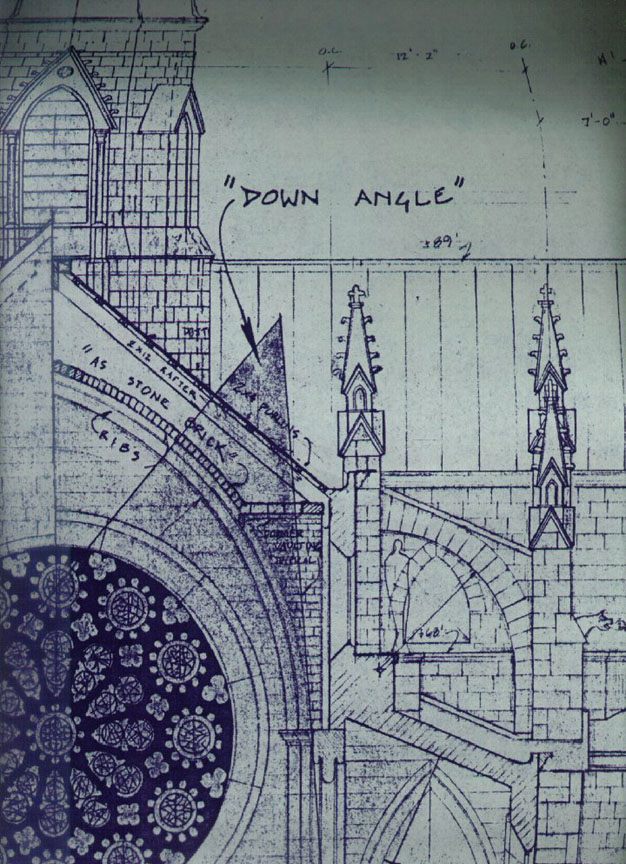Is God Dead in 2013? At the very least, organized religions are facing a radical change.
Forget
the hype and believe the stats. Religious affiliation is falling, and
more Americans than ever label themselves as “nones” (answer surveys as
“no affiliation” ).
According to the Pew Forum,
The number of Americans who do not identify with any religion
continues to grow at a rapid pace. One-fifth of the U.S. public – and a
third of adults under 30 – are religiously unaffiliated today, the
highest percentages ever in Pew Research Center polling.
Why the change?
Many Millennials (ages 18-30) are eligible for polling for the first
time over the last five years and have replaced the older generations,
who are dying: 34% of Millennials polled claim “no affiliation,”
compared to less than 10% of the Greatest Generation.
Simultaneously,
all age groups are decreasingly religious by about 4% since 2007. Also,
the vast majority (92%) of “nones” were raised in religious households.

This means that people of all ages are actively rejecting
religious affiliation. Interviews and statistical research confirm that
top two reasons for rejecting religion are 1) the politicization of
religion (churches supporting candidates, polarization over Israel); and
distrust of religious institutions (sex and fraud scandals).
These
two reasons mix with a third cause for rejecting religion: it is simply
not necessary. In previous decades religious organizations were
cornerstones of community life. These days Americans find community
online (
through Policymic, for example) or in other personal settings
like coffee shops or civic organizations. As religious participation
became harder and harder to justify due to the scandal and polarizing
politics, people of all ages simply find their community elsewhere. For
millennials who grew up with the internet, the transition is obvious.

However, a decrease in religious participation does not mean that God is dead. First off, the
study of Global Religious Participation (the often-quoted “1 in 6 unaffiliated” study) is
deeply skewed because it includes secular countries like North Korea and China.
Also,
religious participation tends to increase with age, so us 20-somethings
are likely to find religion later in life. The American population will
heavily favor those over 65 in the next decade, which has historically
been a religious set.
And here’s the key point: non-religious
does not mean non-believer.
93% of Americans believe in a God, including 73% of the “nones”. 42% of
“nones” pray. Most "nones" (55%) describe themselves as either
“religious” or “spiritual but not religious” (which is the fastest
growing segment).
So no, God is not dead in 2013, but religious organizations are facing radical changes going forward.
It’s about time.
God is Not Dead in 2013, but organized religions are
experiencing a radical restructuring.
Forget the hype and believe the stats. Religious affiliation
is falling, and more Americans than ever label themselves as “nones” (answer
surveys as “no affiliation” ). According to the Pew Forum, “The number of
Americans who do not identify with any religion continues to grow at a rapid
pace. One-fifth of the U.S. public – and a third of adults under 30 – are
religiously unaffiliated today, the highest percentages ever in Pew Research
Center polling.”
Why the change? Many Millennials (ages 18-30) are eligible for polling for the first time over
the last five years and have replaced the older generations, who are dying: 34%
of Millennials polled claim “no affiliation,” compared to less than 10% of the Greatest
Generation.
Simultaneously, all age groups are decreasingly religious by
about 4% since 2007. Also, the vast majority (92%) of “nones” were raised in religious
households.
This means that people of all ages are actively rejecting
religious affiliation. Interviews and statistical research confirm that top two
reasons for rejecting religion are 1) the politicization of religion (churches
supporting candidates, polarization over Israel); and distrust of religious
institutions (sex and fraud scandals).
These two reasons mix with a third cause for rejecting
religion: it is simply not necessary. In previous decades religious
organizations were cornerstones of community life. These days Americans find
community online (through Policymic, for example) or in other personal settings
like coffee shops or civic organizations. As religious participations became harder and harder to justify due to the
scandal and polarizing politics, people of all ages simply find their community
elsewhere. For millennials who grew up with the internet, the transition is
obvious.
However, a decrease in religious participation does not mean
that God is dead. First off, the study of Global Religious Participation (the
often-quoted “1 in 6 unaffiliated” study) is deeply skewed because it includes secular
countries like North Korea and China.
Also, religious participation tends to increase with age, so
us 20-somethings are likely to find religion later in life. The American
population will heavily favor those over 65 in the next decade, which has
historically been a religious set.
And here’s the key point: non-religious does not mean
non-believer. 93% of Americans believe in a God, including73% of the “nones”.
42% of “nones” pray. Most nones (55%) describe themselves as either “religious”
or “spiritual but not religious” (which is the fastest growing segment).
So no, God is not dead in 2013, but religious organizations
are facing radical changes going forward. It’s about time.






















